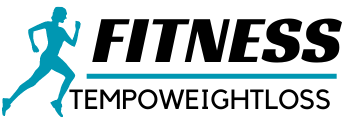What to Do After Eating High Cholesterol Foods and What to Avoid – Foods high in cholesterol are known to increase your risk of heart disease, stroke, and other health complications. While it’s important to be mindful of what we eat, it’s also important to know what to do and avoid after consuming high-cholesterol foods. In this article, we discuss the important things to do and avoid after eating high-cholesterol foods to help you maintain a healthy lifestyle.
Learn About High Cholesterol Foods
High-cholesterol foods are foods that contain high levels of saturated fat and trans fat. These foods include red meat, full-fat dairy products, processed meats, fried foods, and baked goods. When we eat these foods, they increase levels of bad cholesterol in the blood, leading to a higher risk of heart disease and other health complications.
why you should care
High cholesterol is one of the leading causes of heart disease, stroke and other health complications. If left unchecked, high cholesterol levels can lead to the buildup of plaque in the arteries, leading to an increased risk of heart attack and stroke. Therefore, it is important to be mindful of what we eat and how we manage our cholesterol levels.
What Happens When You Eat High-Cholesterol Foods
When we eat high-cholesterol foods, they increase the levels of bad cholesterol in the blood. This bad cholesterol, also known as LDL (low-density lipoprotein) cholesterol, can lead to the buildup of plaque in the arteries, leading to an increased risk of heart disease and stroke. Additionally, high cholesterol levels can lead to the development of fatty deposits in the liver and other organs, leading to a higher risk of liver disease.
Things To Do After Eating High-Cholesterol Foods
1. Drink warm water
Drinking warm water after eating high-cholesterol foods can help flush excess cholesterol from our system . It can also help prevent constipation, which can be a common side effect of consuming fatty foods.
2. Eat Fiber-Rich Foods
Eating fiber-rich foods, such as fruits, vegetables, and whole grains, can help lower blood cholesterol levels. These foods can help reduce the absorption of cholesterol in the digestive system and promote healthy digestion.
3. Exercise
Physical activity can help lower blood cholesterol levels. Regular exercise can help increase the levels of HDL (high-density lipoprotein) cholesterol in our system, which can help counteract the effects of LDL cholesterol.
4. Consume Antioxidants
Eating antioxidant-rich foods, such as berries, dark chocolate, and nuts, can help lower blood cholesterol levels. Antioxidants can help prevent plaque buildup in arteries and promote healthy blood circulation.
5. Take cholesterol-lowering supplements
Cholesterol-lowering supplements, such as fish oil and plant sterols, can help lower blood cholesterol levels. These supplements can be an effective way to manage high cholesterol levels, but it’s important to consult your doctor before taking any supplement.
Things to Avoid After Eating High-Cholesterol Foods
1. Smoking
Smoking can adversely affect our cholesterol levels. It can increase the level of LDL cholesterol in our blood and lower the level of HDL cholesterol, leading to a higher risk of heart disease and stroke.
2. Drinking alcohol
Excessive alcohol consumption can negatively affect our cholesterol levels. It can increase the level of triglycerides in our blood, leading to a higher risk of heart disease and other health complications.
3. Eat saturated fat
Eating saturated fat can negatively affect our cholesterol levels. These fats increase the levels of LDL cholesterol in our blood, leading to a higher risk of heart disease and stroke. It’s important to limit our consumption of saturated fat and choose healthier alternatives like unsaturated fats.
4. Eating processed foods
Processed foods are often high in calories, sodium, and unhealthy fats, making them a poor choice for those looking to manage their cholesterol levels. It’s important to read food labels carefully and choose whole, unprocessed foods whenever possible.
5. Avoid skipping meals
Skipping meals can negatively affect our cholesterol levels. It causes our blood sugar levels to drop, leading to increased hunger and can lead us to make unhealthy food choices later on.
Be mindful of your food choices
It is important to be mindful of our food choices and choose healthier alternatives whenever possible. This may include choosing lean meats, low-fat dairy products, and whole, unprocessed foods. It’s also important to read food labels carefully and choose products that are low in saturated and trans fats.
Tips for Lowering High Cholesterol Levels
In addition to the suggestions above, there are a few other tips that can help reduce high cholesterol levels. These include losing weight, quitting smoking, managing stress and getting regular cholesterol screenings.
when to see a doctor
It’s important to talk to your doctor if you’re concerned about your cholesterol levels. They can perform cholesterol screenings and offer advice on managing high cholesterol levels, including lifestyle changes and medication if necessary.
Frequently Asked Questions – Frequently Asked Questions
A: No, not all high-fat foods are bad for cholesterol levels. Some fats, like monounsaturated and polyunsaturated fats, can actually help improve cholesterol levels. It is important to choose healthy fats and limit the consumption of saturated and trans fats.
A: Yes, cholesterol levels can be lowered without medication. Lifestyle changes, such as eating a healthy diet, exercising regularly, and quitting smoking, can all help lower cholesterol levels.
A: Yes, exercise can help lower cholesterol levels by increasing the levels of HDL cholesterol in the blood. Aim for at least 30 minutes of regular physical activity each day, such as walking, running, or cycling.
A: If you are over 20 years old, it is recommended to have your cholesterol levels checked at least every five years. However, those with a family history of heart disease or other risk factors may need to have their cholesterol levels checked more frequently.
A: It is important to limit your intake of saturated and trans fats, which are found in foods such as fried foods, processed snacks, and fatty meats. Instead, choose whole, unprocessed foods and choose healthier fats like olive oil, avocado, and nuts.




